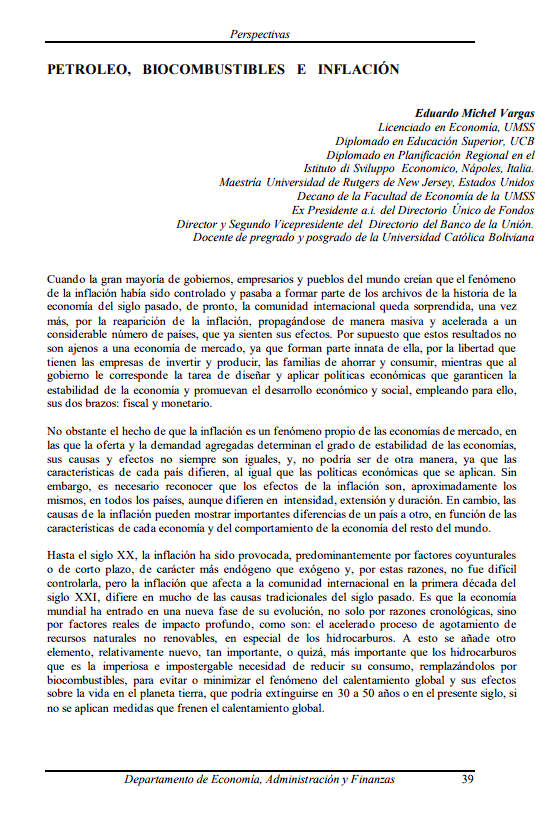Oil, biofuels and inflation
DOI:
https://doi.org/10.35319/7gmzp976Keywords:
Inflation, Market economy, Fiscal and monetary policies, Non-renewable natural resourcesAbstract
Just when most governments, businesses, and societies believed inflation had been relegated to history, it has unexpectedly returned and is now affecting many countries around the world. While inflation is inherent to market economies, its causes and effects vary depending on each country’s characteristics and the global context. In the past, inflation was mainly caused by short-term domestic factors, but in the 21st century, it is increasingly driven by global and structural causes. The two key drivers of current inflation are: (1) the gradual depletion of non-renewable natural resources, especially hydrocarbons, and (2) global warming triggered by their overuse. Even though these risks were well known, many political and business leaders failed to take timely and effective action, focusing instead on maximizing profits. Addressing the issue now requires comprehensive fiscal and monetary policies that adapt to these new global challenges.
Downloads
References
Bullón Miró, Fernando (2005). El mundo ante el cenit del petróleo.
Briefing Food Prices (2007). Cheap No More. The Economist, diciembre 8-14, pp.81-83
Gore, Al (2006). An Inconvenient Truth. Estados Unidos: Melcher Media, Rodale.
Krugman, Paul y Obsfeldt, Maurice (2001). Economía Internacional, Teoría y Política. 5ª edición. España: Addison Westley.
Krugman, Paul y Wells, Robin (2006). Macroeconomics. 2ª edición. Estados Unidos: Worth Publishers.
Leaders (2007). The End of Cheap Food. The Economist, diciembre 8-14, pp. 11-12.
Meadows, Donella y Dennis, Randers y Behrens (1972). Los límites del crecimiento. México: Fondo de Cultura Económica.
Meadows, Donella y Dennis, Randers y Behrens (1993). Más allá de los límites del crecimiento. 2ª edición. España: El País – Aguilar.

Downloads
Published
Issue
Section
License
Copyright (c) 2008 Revista Perspectivas

This work is licensed under a Creative Commons Attribution-NonCommercial-ShareAlike 4.0 International License.
La Revista Perspectivas de la Universidad Católica Boliviana, es una revista de acceso abierto, por lo tanto, es de libre acceso en su integridad. Está permitida su lectura, búsqueda, descarga, distribución y reutilización legal en cualquier tipo de soporte únicamente para fines no comerciales, siempre y cuando la obra sea debidamente citada.




